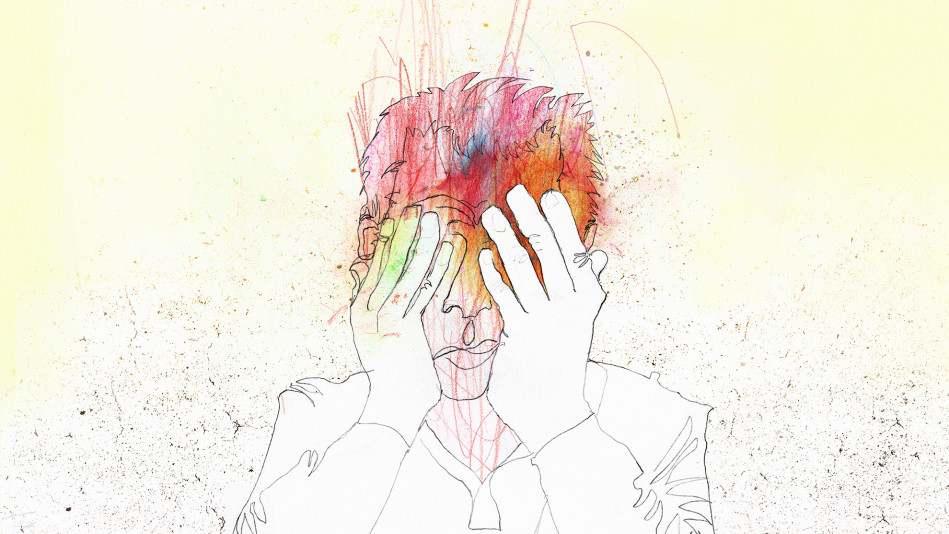How to Stay Sane When Disagreements Are Driving Your Family Crazy
If the political has suddenly gotten very personal, therapist Harriet Lerner, PhD, has advice to keep you sane.

Illustration: Lorenzo Petrantoni
Every family is a delicate system, with its own unresolved issues and what I call "high-twitch" areas that can't be discussed. The greater your family's level of anxiety, the lower its tolerance for differences. I remember one family who stopped speaking to each other because some of them sold Amway products, and the others refused to use them.
Right now we're all swimming in a soup of anxiety—about jobs, healthcare, the future of our planet—and even solid families are feeling the strain. That state of chronic stress disrupts our ability to empathize and solve problems. Folks become polarized in extreme positions and yo-yo between cutting each other off and calling each other out. We see the other person through a very narrow lens, focusing only on her perceived shortcomings instead of acknowledging her as a whole, complex being.
Families already have a tendency to label each other. For instance, Susie thinks only of herself, so of course she's not worried about people on welfare. And Ruby never thinks at all, so she's happy to waste our taxpayer dollars. As tension increases, we're even more inclined to lock our family into those rigidly defined roles. Instead of thinking flexibly and creatively about how to solve conflicts, we lash out and throw fuel on the fire.
To break the cycle, we need to get a grip on our own reactivity. After all, the only person you can change is you. That's a cliché, but like most clichés, it's a deep truth. So focus on your part of the pattern and take some different steps—because calmness is contagious, just as anger leads to more of the same.
Try putting on your anthropologist's hat and viewing your difficult family as an interesting culture. Observe everything, including your own behavior. What sets you off? What happens if you respond differently? When tree-hugging Aunt Debbie starts hammering you again for not switching to hemp tampons, use humor instead of leaving in a huff or getting hooked into a fight. Aunt Debbie will never change, but that's not the point. The goal is to bring your best self to your relationships, even when the other person is being a jerk. That's the kind of human being you want to be.
Harriet Lerner, PhD, is the author of Why Won’t You Apologize? Healing Big Betrayals and Everyday Hurts.
Right now we're all swimming in a soup of anxiety—about jobs, healthcare, the future of our planet—and even solid families are feeling the strain. That state of chronic stress disrupts our ability to empathize and solve problems. Folks become polarized in extreme positions and yo-yo between cutting each other off and calling each other out. We see the other person through a very narrow lens, focusing only on her perceived shortcomings instead of acknowledging her as a whole, complex being.
Families already have a tendency to label each other. For instance, Susie thinks only of herself, so of course she's not worried about people on welfare. And Ruby never thinks at all, so she's happy to waste our taxpayer dollars. As tension increases, we're even more inclined to lock our family into those rigidly defined roles. Instead of thinking flexibly and creatively about how to solve conflicts, we lash out and throw fuel on the fire.
To break the cycle, we need to get a grip on our own reactivity. After all, the only person you can change is you. That's a cliché, but like most clichés, it's a deep truth. So focus on your part of the pattern and take some different steps—because calmness is contagious, just as anger leads to more of the same.
Try putting on your anthropologist's hat and viewing your difficult family as an interesting culture. Observe everything, including your own behavior. What sets you off? What happens if you respond differently? When tree-hugging Aunt Debbie starts hammering you again for not switching to hemp tampons, use humor instead of leaving in a huff or getting hooked into a fight. Aunt Debbie will never change, but that's not the point. The goal is to bring your best self to your relationships, even when the other person is being a jerk. That's the kind of human being you want to be.
Harriet Lerner, PhD, is the author of Why Won’t You Apologize? Healing Big Betrayals and Everyday Hurts.



